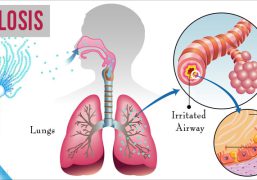Common Cold
The common cold is a viral infection that affects the upper respiratory system, including the nose, throat, and sinuses. It is caused by a group of viruses known as rhinoviruses, and can also be caused by other viruses such as coronaviruses or adenoviruses.
The symptoms of the common cold typically include a runny or stuffy nose, sore throat, cough, sneezing, fatigue, and mild body aches. The symptoms usually develop within a few days of exposure to the virus, and can last for up to two weeks.
Treatment for the common cold involves managing symptoms and allowing the body to fight off the infection. This may include over-the-counter medications such as pain relievers, cough suppressants, and decongestants. Staying hydrated, getting rest, and using a humidifier or steam treatments can also help to relieve symptoms.
Prevention of the common cold involves practicing good respiratory hygiene, such as washing hands frequently and covering the mouth and nose when coughing or sneezing. Avoiding close contact with people who are sick, and avoiding touching the face or mouth can also help to reduce the risk of infection.
It is important to seek medical attention if symptoms are severe or persist for more than two weeks, or if they are accompanied by other symptoms such as high fever, difficulty breathing, or chest pain. These symptoms may indicate a more serious condition such as pneumonia or bronchitis.






